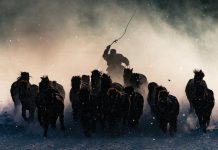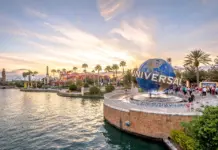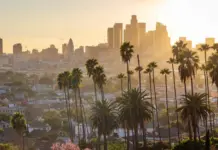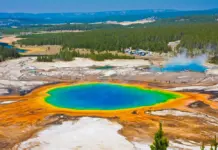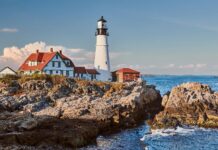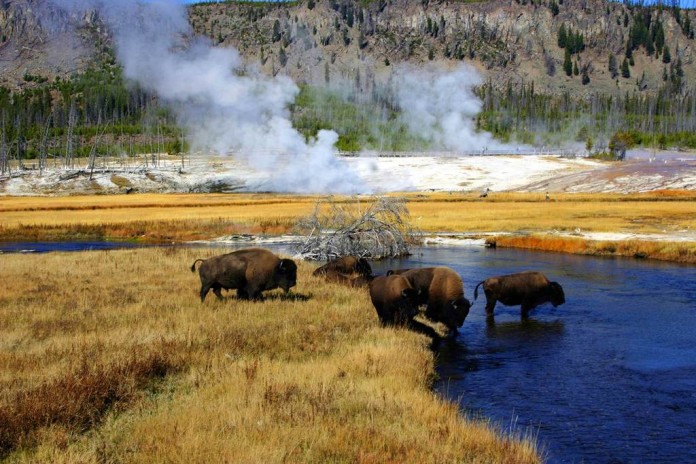
Insider’s Guide to Yellowstone: Where to Trek and Geyser Gaze Without The Crowds
North America’s greatest super-volcano, craggy canyons, vast subalpine forests, geysers and hot springs: the range of otherworldly landscapes in Yellowstone National Park could set a Star Wars movie. The park stars on most US travel wishlists, and 3.5 million visitors flock to sights such as Old Faithful annually. But these 3475 sq km of wilderness harbour many secrets, if you know where to look.
- A few useful tips before visiting Yellowstone National Park
- 10 best ways to explore the US National Parks
- The ULTIMATE Yellowstone National Park Travel Guide: Top Things to Do, See, Stay, Tips & MORE
- 15+ Best & Most Beautiful National Parks in the US You Shouldn’t Miss
- Antelope Canyon travel blog — Upper Antelope vs Lower Antelope & photography tips and best camera settings for Antelope Canyon

For many visitors, observing Yellowstone’s multitude of wildlife often trumps even the bizarre geothermal landscapes. Black and grizzly bears, the largest herd of wild bison in the US, elk, coyotes and moose can be found here. One of the greatest wildlife reintroduction stories in recent history – the return of wolves to Yellowstone – began in the 1990s, dramatically increasing park biodiversity and cementing the park’s status as the largest preserved ecosystem between the Arctic Circle and the Tropic of Cancer.
It’s easy to see why Yellowstone was recognised as a tract of land worth protecting as early as 1872, when it became the planet’s very first national park. The park is poised to headline the centenary celebrations of the US National Parks Service during the summer of 2016, but there are still plenty of places to dodge the crowds. In fact, visiting before summer will allow you to traipse the trails in greater tranquility.
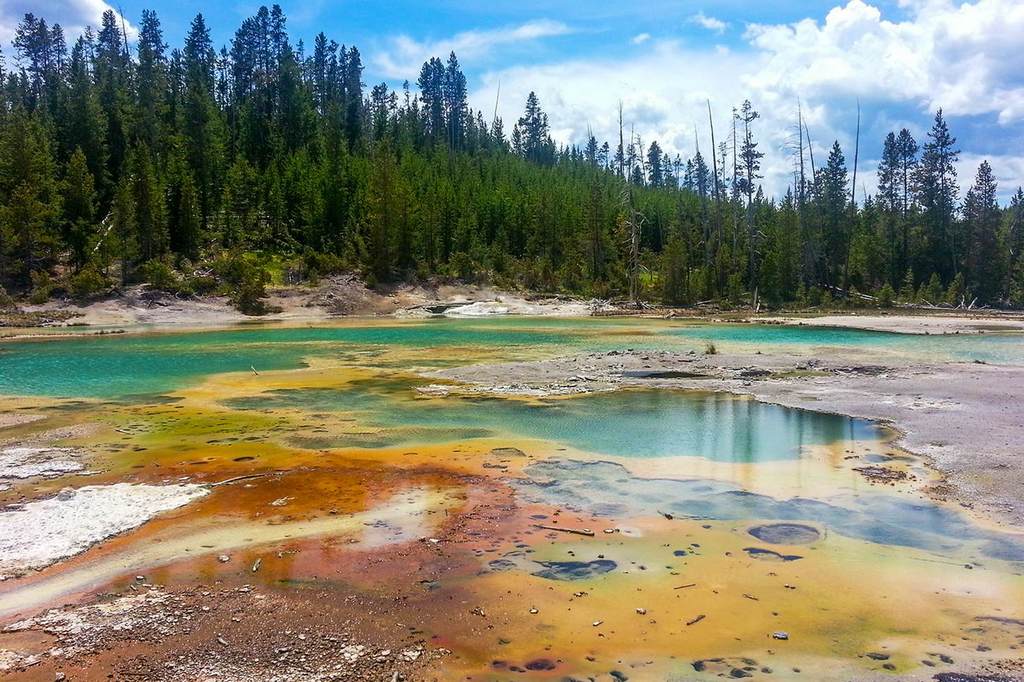
Get A New View of Old Faithful
Much of Yellowstone’s tourism – and a fair amount of its volcanic velocity – funnels into the phenomenal geyser Old Faithful, which jets boiling water more than 164ft into the air with uncanny regularity. Best accessed through the park’s South Entrance and to the west of West Thumb and Grant Village, it’s at the heart of the park’s super-volcano. Old Faithful is also the most popular stop-off, but it’s just one of many fascinating features in the Upper Geyser Basin.
First off, given nearly one-quarter of the world’s geysers are located in this vicinity, it’s worth downloading the Yellowstone National Park Geyser App (ypf.org), which helps you plan your visit around eruptions.
You’ll likely want to stay for at least one of Old Faithful’s explosive spectacles. The newest way of watching it is from a boardwalk mostly made up of old tires from the park’s fleet of vehicles. But to evade the hordes, hike the 1.1-mile Observation Point Trail loop, which delves into the surrounding forest and factors in its own regularly erupting geyser, Solitary Geyser, besides providing fine views of the Old Faithful action over the treetops.
A 2.5-mile drive southeast of the Old Faithful turn-off, the Kelper Cascades parking area is the starting point for the 4.8-mile hike to the far less-visited Lone Star Geyser. A gently rising route ushers you through pastures and pine forests to the geyser, where eruptions happen about every three hours. Longer and yet more deserted is the Delacy Creek Trail, 6.2 miles east of Kelper Cascades. The 6.2-mile out-and-back route runs up to Shoshone Lake, the park’s largest backcountry body of water, sporting some striking black-sand beaches. Superb secret camping spots rim the shores.
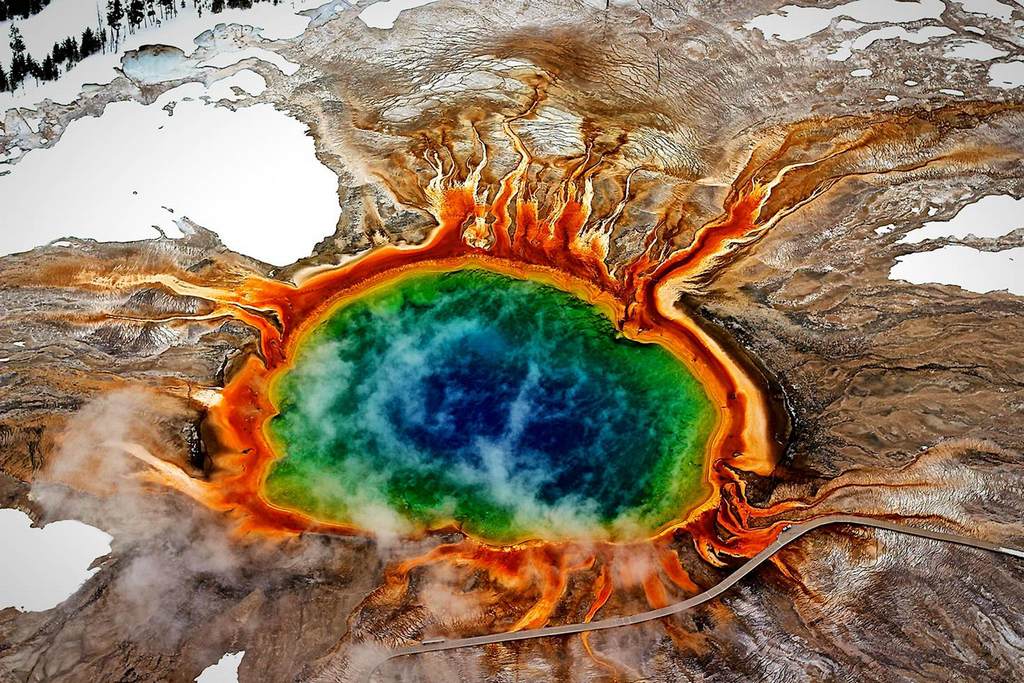
Exploring The Midway and Lower Geyser Basins
Heading north from Old Faithful, a 5.6-mile drive brings you to another famous hotbed of geothermal activity, Midway Geyser Basin, crowned by the dazzling hot springs of Grand Prismatic. The prettiest single sight in Yellowstone, the springs enthral with their spreads of many-hued algae. When viewed from above, they look like a vast, vivid peacock feather, where turquoises and ochres tint the rising mist.
For spectacular vistas of the springs, take the turn-off to the Fairy Falls trailhead, about one mile south of Midway Geyser Basin. After a mile hike on this path, a steep side-trail sheers off to the viewpoint on aptly named Picture Hill.
For a quick fix of all the volcanic melodrama Yellowstone can conjure up, Fountain Paint Pot Trail, a 2.2-mile drive northeast of the Grand Prismatic parking area in Lower Geyser Basin, boasts mud pots and fumaroles, as well as geysers and hot springs, in a short boardwalk loop trail.
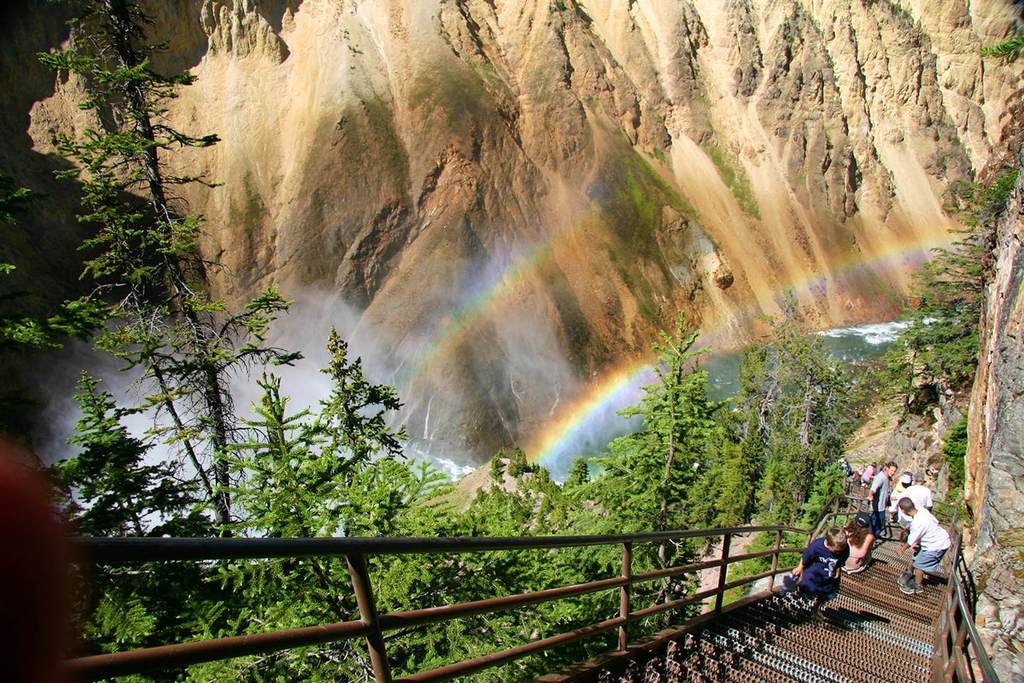
Be Awed by The Grand Canyon of Yellowstone
North of Yellowstone Lake, the Yellowstone River tumbles over two immense waterfalls near Canyon Village (nps.gov/yell/planyourvisit/canyonplan.htm) in the north-central area of the park. The second of these, Lower Yellowstone Falls, forms the highest waterfall in the Rockies at 308ft high. The glassy blue water then seethes down Yellowstone’s very own Grand Canyon, leaving the forests behind as it gouges out a rift over 984ft deep through rock, which ripples in alternating shades of red, pink and yellow. From the Artist Point parking lot, Uncle Tom’s Trail descends 328 steps and more than 492ft to views from the base of the lower falls.
A glorious drive 30 miles north and then east from Canyon Village takes you out to the Lamar Valley, deemed one of the best places in the world to go wolf watching.
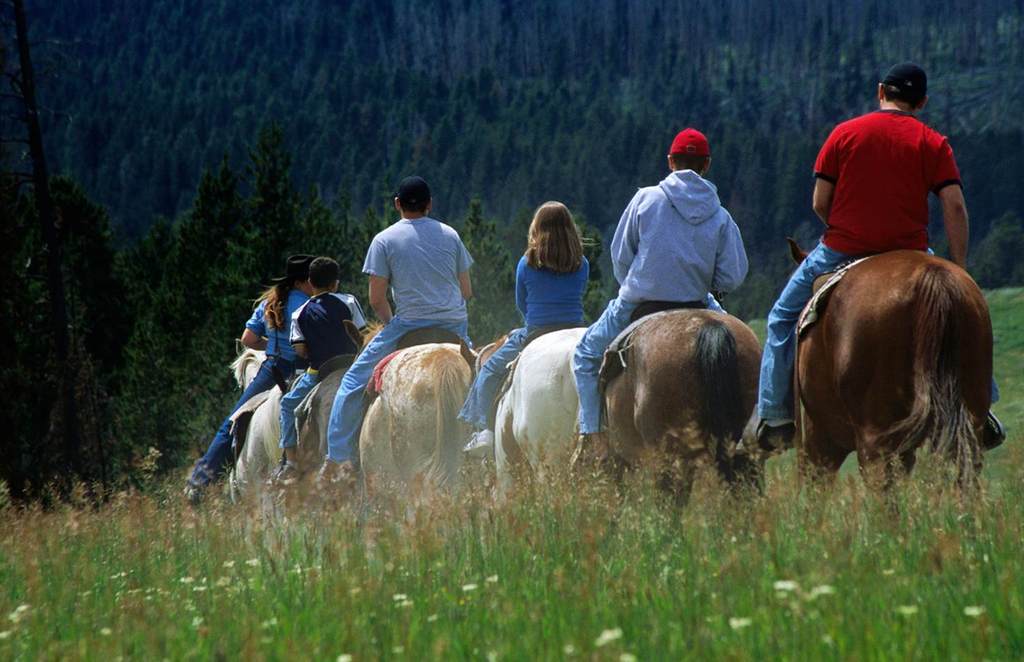
Wacky Ways to Explore Yellowstone
The park’s vastness, coupled with the 45mph speed limit, mean driving in Yellowstone can get tedious. Fortunately, there is a variety of fun ways to travel around.
If it’s reliving the early days of travel within Yellowstone that you crave, sign up for a Wild West Tour (yellowstonenationalparklodges.com), run from Tower-Roosevelt village, 18.6 miles north of Canyon Village. Stagecoach or horseback rides run several routes, including out to Old West Dinner Cookout, where you’ll feast settler-style on steak, cornbread muffins and a ‘cup o’ joe’ around a campfire in the wilds.
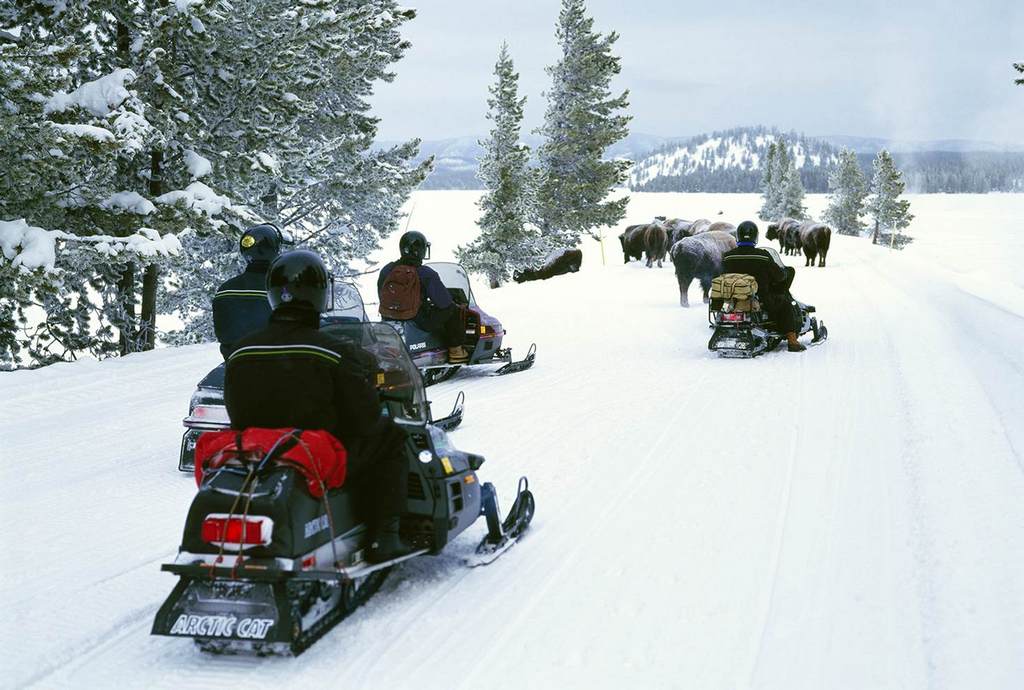
To reach more remote corners of the park in the most offbeat manner possible, Yellowstone has its own licensed llama trek operator (yellowstonesafari.com) with three- or four-day trips including backcountry camping.
Even the onset of the snowy season (December to April) doesn’t prevent travel to Yellowstone. In fact, the snowmobiling trails around the park, that can be plied with outfitters like Two Top Snowmobile (twotopsnowmobile.com), are among North America’s best – allowing you to experience this wilderness at its very wildest.



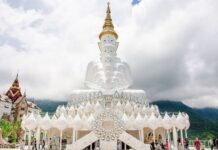



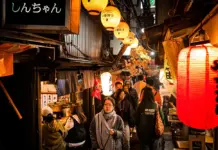








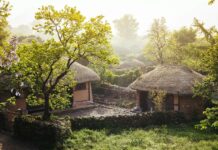


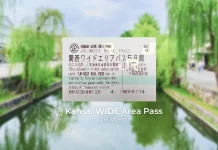



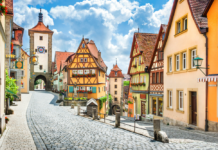



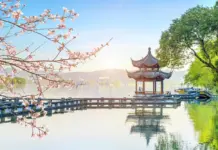


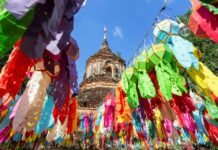

![10 best airports in Asia in 2016 [RANKED] kuala-lumpur-international-airport-best airports in asia in 2016 by skytrax ratings](https://livingnomads.com/wp-content/uploads/2016/08/29/kuala-lumpur-international-airport-best-airports-in-asia-in-2016-by-skytrax-ratings-218x150.jpg)


